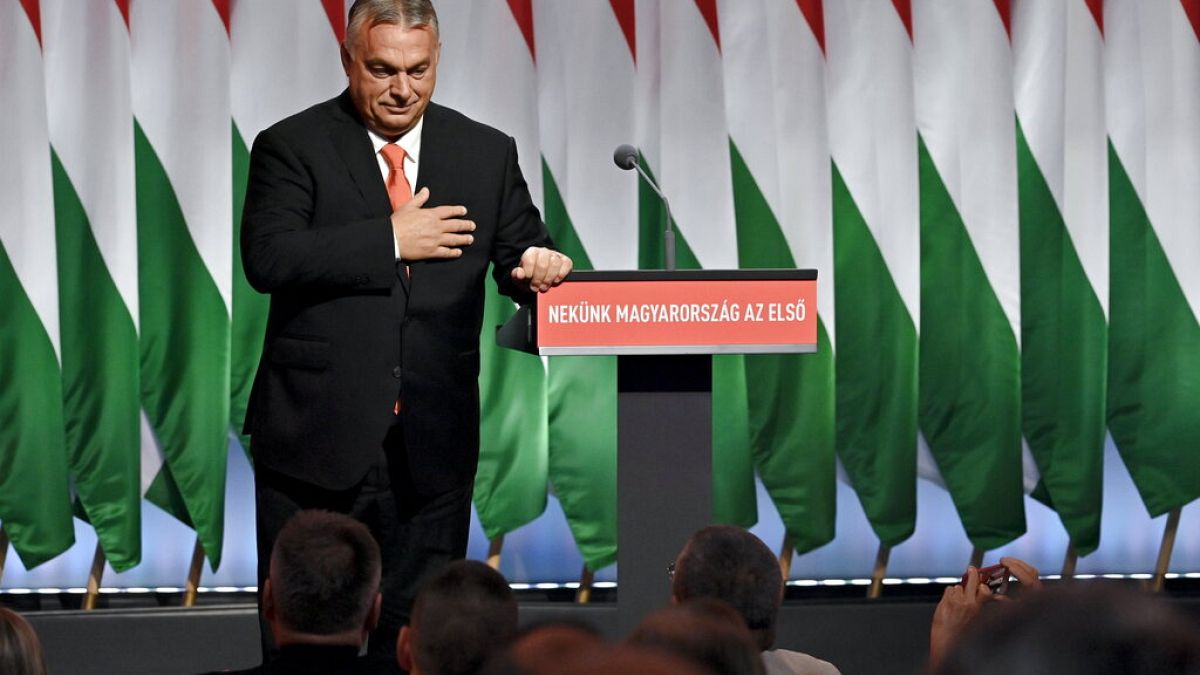An opinion piece published earlier this week claimed the possibility of an upset in Hungary is so great that Europe should “prepare for a possible rigged election”.
A chorus of detractors are stoking disquiet with claims that the Hungarian prime minister will not accept the outcome of elections this spring, and that the balloting will be rigged. Don’t be fooled.
When Prime Minister Orbán is reelected, as I predict he will be, it will be because of broad voter support for his achievements in office: economic recovery during the pandemic, jobs, growth, tax cuts and affordable energy prices.
On Sunday, April 3, voters in Hungary will go to the polls to elect a new National Assembly: 199 members, elected directly in a single round of voting from 106 single-member constituencies, and the remainder from national party lists. The new parliament will decide who governs Hungary for the next four years.
As in previous election years, critics of the Orbán government have been hard at work to frame the story in advance. This year, the coverage wants you to know that this is supposedly shaping up to be one of the toughest election contests yet for Prime Minister Orbán and the ruling alliance, as they face a united opposition and new challenger.
Some observers have taken things even further, predicting that the governing parties will lose and that the PM will refuse to accept the results. An opinion piece published on Euronews claimed that the possibility of an upset is so great that Europe should “prepare for a possible rigged election”.
With a sense for drama, the author ominously warned that “European democracy might be approaching its very own Capitol moment”: an allusion to the violence in Washington, D.C. in January 2021.
These stories are as cynical as they are absurd. Prime Minister Orbán and the ruling alliance are running on a long list of achievements in office. Voters will reelect him, I predict, because he has taken the country forward and delivered real results for Hungarians.
Hungarians will remember government’s 2021 achievements
When the coronavirus crisis hit hardest, Hungary stood among Europe’s leaders in both vaccine procurement and the number of jabs administered. Thousands of lives were saved, and Hungarians will remember that when they turn up to the voting booths in April.
When we began to round the corner on the pandemic, Hungary was among the first countries in Europe to reboot its economy. Unemployment fell back to 3.7 per cent in November 2021 and remains at one of the lowest levels in the EU. GDP estimates for 2021 show growth of 6.5 to 7 per cent.
The minimum wage in Hungary is now higher than the average wage under the previous socialist governments. This year, Hungarian families with children will be reimbursed for their entire personal income tax paid in 2021. Hungarian pensioners are better off in 2022 than they have ever been before.
Meanwhile, to counter rapidly increasing energy prices and bolster the economy, the government capped loan interest rates at their October 2021 level, maintained the popular utility cost reduction scheme, and set a maximum price of HUF 480 (€1.35) per litre for fuel.
Health, jobs, tax cuts, affordable energy, economic growth – these things matter to voters.
Discord within the opposition?
All election battles are hard-fought, of course, and this year’s contest will be no exception. But there’s more to the story about this so-called unified opposition and their candidate for prime minister.
First of all, to call this coalition broad is an understatement. The six parties include former communists, socialists, greens, and the far right.
A popular Hungarian news portal recently ran a lengthy article quoting sources inside the campaign complaining about deep “rifts and tension,” failures to take decisions, the lack of election programme and message: a campaign in disarray.
The opposition’s candidate for prime minister, meanwhile, posted a video to his Facebook page in which he discussed, amongst other inappropriate topics, the number of Jews in Fidesz, the governing party. He has backed some of the most notorious candidates of the antisemitic, far-right Jobbik party.
Gerrymandering claims don’t stand up
Another favourite argument of these critics is that the election cannot be free and fair because the electoral districts have been gerrymandered, an entirely baseless claim.
After 2010, the size of the parliament was reduced from 386 to 199 members, which meant that the electoral districts had to be redrawn.
The districts also had to be adjusted to fix large discrepancies in voter population – because a ballot cast by a voter in rural, eastern Hungary should not have more weight than that of a voter in Budapest – and Hungary’s electoral reform did just that. The size of current districts has a much more even distribution of voters.
Some would like you to believe that this was all about gerrymandering, but they can’t support it. Prior to the elections in 2018, a correspondent for a once pre-eminent American newspaper filed a story that ran under the headline “Disunity and gerrymandering frustrate anti-Orban voters”.
The reporter focused at length on Electoral District 1 as the ultimate example of gerrymandering, redrawn to make it impossible for the opposition to win. Who won District 1 in April 2018? The opposition.
The fact is, they have never credibly supported the gerrymandering charge. But how does the line go? “Repeat a lie often enough…”
Dark warnings about a contested election result and a rigged election are merely advocacy journalism at work. These writers shade the truth and conceal facts in service of their cause.
More discriminating readers, and European decision-makers, should exercise scepticism toward such far-fetched claims and ill-advised calls for intervention.
The Hungarian voter is no fool. Let them decide on April 3.
Zoltan Kovacs is the Hungarian Secretary of State for International Communication and international spokesman of the Hungarian government.


